Britain could be left holding the bag over Ukraine
The new Defence Secretary, Grant Shapps, in his first newspaper interview since taking up the position, called for British weapons manufacturers to set up shop in Ukraine and revealed discussions with Zelensky about the Royal Navy getting more involved in the Black Sea.
The biggest potential escalation was his suggestion that British military instructors be moved into Ukraine.
“I was talking today about eventually getting the training brought closer and actually into Ukraine as well.”
As of yet, the UK and allies have avoided a formal military presence in the conflict due to the risk of direct conflict with Russia, so these were major policy changes being floated.
The same day, former Russian President and now deputy chairman of the country’s influential Security Council, Dmitri Medvedev, posted on Telegram that such moves bring World War Three closer.
‘[This will] turn their instructors into a legal target for our armed forces… understanding perfectly well that they will be ruthlessly destroyed. And not as mercenaries, but namely as British NATO specialists.’
Just over two hours later, the Prime Minister had pushed back at the Defence Secretary’s comments telling reporters on the first day of his party conference there were no immediate plans for this:
“What the defence secretary was saying was that it might well be possible one day in the future for us to do some of that training in Ukraine. But that’s something for the long term, not the here and now. There are no British soldiers that will be sent to fight in the current conflict.”
Leaving aside Mr Shapps’ questionable ministerial record and lack of obvious suitability for his brief, this incident (which was conveniently brushed under the carpet of the Tory conference) raises some serious questions about decision making at the MoD.
Was this interview cleared with No. 10 and if so, are they now backtracking? Or did the Defence Secretary go off script and unsuccessfully try to use his own initiative?
Or was this government floating an idea and testing the waters? If so, they got their answer quick.
The sight of British soldiers returning in body bags in an election year might not be a big vote winner.
Government’s decision to ramp up support for Ukraine and double down on its all-or-nothing position comes as cracks in the alliance grow wider by the day.
As all this was unfolding, Slovakia was electing its next parliament, with an anti-Ukraine party winning the election. The country has already halted military aid to Kiev, joining the Hungarians.
Just two weeks ago, one of Ukraine’s strongest allies, compared it to ‘a drowning man’.
A dispute over grain exports got so bad that the Polish president said:
‘The drowning man is really clinging to anything available and it is somehow what the situation between Poland and Ukraine is like today… it is clinging to anything available. Can we hold grudges against them? Of course, we can. Do we have to act in a way to protect ourselves from being hurt by a drowning one, of course, we have to act in a way to protect ourselves from being harmed by the drowning one, because once the drowning man hurts us, it will not get help from us.’
This was quickly followed by the Polish prime minister announcing: “We are no longer transferring weapons to Ukraine because we are now arming Poland with more modern weapons.”
Next week will see Poland have its own elections, and like Slovakia, an anti-Ukraine party is doing very well in the polls, with hopes to be kingmaker.
The United States is not immune from political division over the conflict, with various presidential candidates from Donald Trump and Vivek Ramaswamy to Robert F Kennedy Jr calling for its end.
Domestic political pressure and war fatigue aren’t the only factors creating friction between Western capitals. After 20 months of being told victory is round the corner, reality is starting to bite.
This week NATO’s most senior military official told the Warsaw Security forum the West is running out of ammunition for Ukraine. Admiral Rob Bauer said: “The bottom of the barrel is now visible.”
UK Defence Minister James Heappey also added that the West’s stockpiles were ‘looking a bit thin’.
This might explain the eagerness to have British weapons manufacturers ramp up production by setting up factories in Ukraine, but it does not explain the stubborn continuation of a failed strategy.
A policy should be judged by its results and as of writing, Ukraine has lost hundreds of thousands of its young men, millions more have fled, its economy is decimated, and its state is on life-support.
Russia, meanwhile, has weathered the sanction-induced storm which turned out to be a strong breeze rather than the predicted tornado. Its economy has not only held up but is on track to grow.
NATO’s eastern flank, be it Turkey, Hungary, now Slovakia and potentially Poland, is already publicly disagreeing and diverging from the Washington-London line, and this is likely to continue.
And the Washington line, as we have only seen too well over the last decade, is liable to change rapidly depending on the outcome of the next election.
So, can Britain afford to continue its Johnsonian zeal for trying to fight Russia down to the last Ukrainian, or is it time to take back control of our foreign policy and start thinking seriously about Europe’s long-term security architecture?
I would hope that the government concerned with ‘long-term decisions for a brighter future’ would be reassessing its policy.

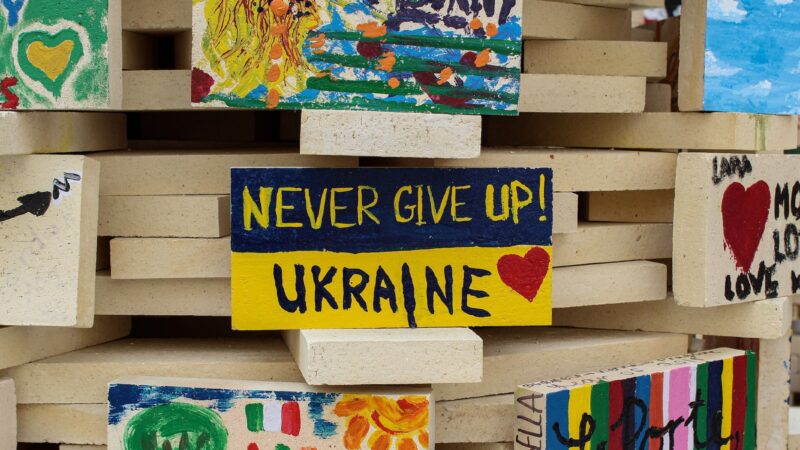
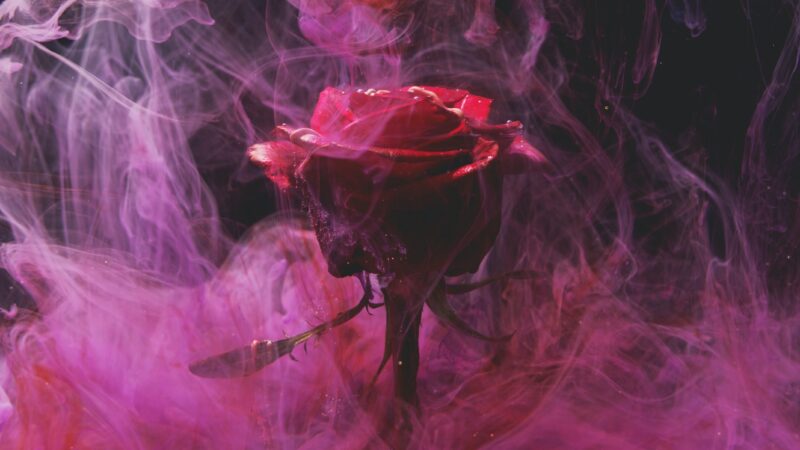
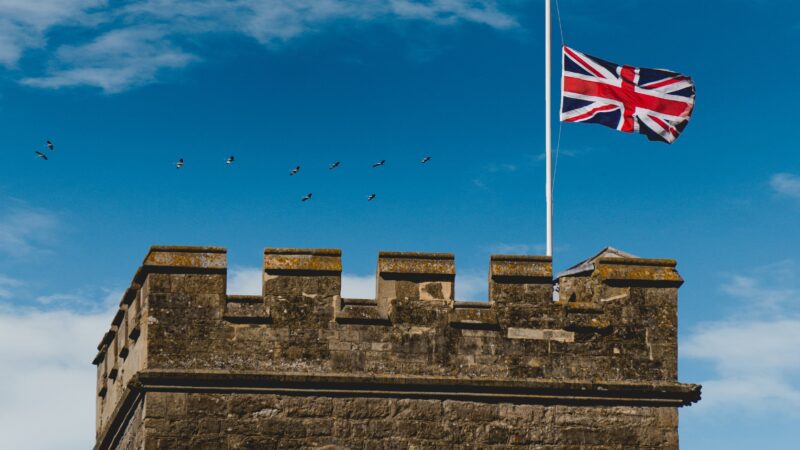




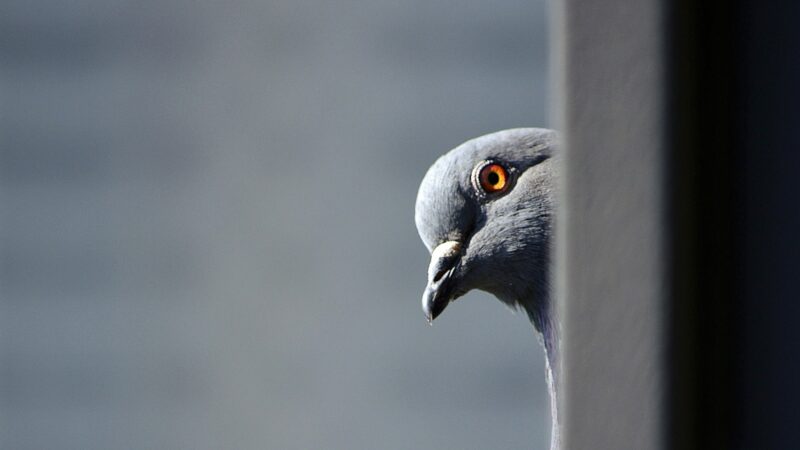
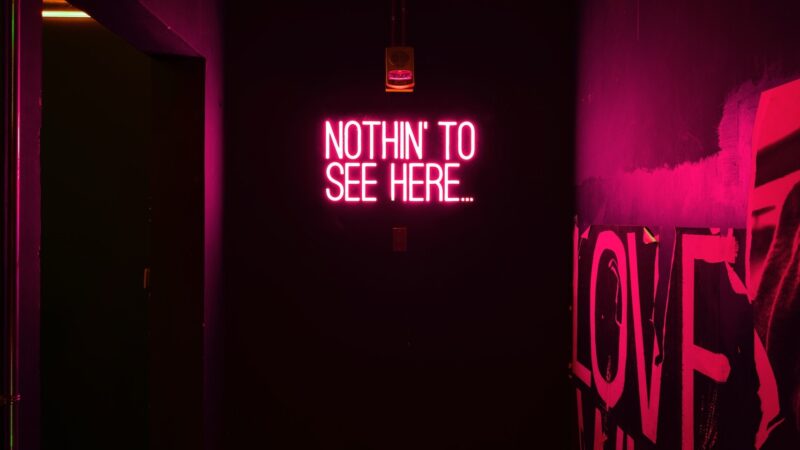
Diversity: A Pyrrhic Victory
The Russo-Ukraine war has underscored the arduous, industrialised drudgery which characterises modern warfare; the mechanised obliteration made possible by modern technology has minimised opportunities for combatants to attain individual recognition and perform feats of life-affirming glory.
In continuation of this grim rediscovery, a revitalised war between Israel and Palestine has revealed the metaphysics to which modern warfare owes its preference for annihilation over capitulation: the depoliticization of combatants, a dehumanising process in which Palestinians become “human animals” and Israelis become “filthy pigs”.
Those who say “Israel’s security is our security” are wrong, but they’re less wrong than those who believe Britain is unaffected by the recent attacks in the south of the country. Over the course of decades, Britain’s policy of mass immigration has produced a series of immigrant enclaves in towns and cities up and down the country, many of which dislike each other far more than the native white British population for a variety of historic reasons; a fact which has been made apparent to everyone after several members poured into London, to celebrate and to mourn the outbreak of war.
However, as one can clearly see in the videos, with Turkish and Palestinian flags fluttering side-by-side, it’s not merely Britain’s Jewish and Palestinian diasporas being at each other’s throats, it’s a matter of every ethnic diaspora and commune piling into coalition with one another, further diminishing social trust and charging historic grievances.
Across all of England, from Oldham to Stoke, from Birmingham to Burnley, from Peckham to Kensington, from Rotherham to Dover, Britain’s post-war policy of mass immigration has gradually turned the Land of Hope and Glory into a giant drop-zone for an inter-ethnic Battle Royale.
Far from a cohesive unit, it is near impossible to walk through the middle of London without encountering a protest dedicated to the interests of another nation. When the government sought to curb illegal migration, Britain’s Albanian diaspora descended upon London in boisterous assembly, decrying the government’s rhetoric as racist and a xenophobic sleight against the disproportionately Albanian ‘asylum-seekers’ crossing the English Channel.
Then again, why shouldn’t they turn out to show support for their Albanian brothers and sisters? Aren’t public protest and freedom of speech cornerstones of our liberal democracy? Surely, the same can be said about the pro-Palestine demonstrations? Weren’t their ‘fiery but mostly peaceful’ demonstrations indicative of their successful integration into Modern British society, underpinned by the civic values of diversity and inclusion, liberty and tolerance? Let’s face it: diversity hasn’t failed. Diversity has triumphed and everyone hates it.
Before projecting the Israeli flag onto 10 Downing Street and the House of Commons, Prime Minister Rishi Sunak, who is of Indian descent, condemned the attack in the strongest possible terms:
Many have humorously remarked on the staunch, some might say excessive, support for Israel amongst Indians and those of Indian descent, but such solidarity is entirely rational. Given their historic enmity with Pakistan, it’s unsurprising that Indians would support the group with a grievance against a comparable ethnoreligious enemy. In blunt terms, the Indian support for Israel isn’t derived from a fondness for Jews, but from a general dislike of Muslims.
The tendency of our politicians to talk about hatred and division in the same breath overlooks the fact ‘hatred’ is just as capable of uniting people as it is of dividing them. Of course, Sunak is not your typical member of Britain’s Indian diaspora but given the riots in Leicester during the autumn of last year, it’s safe to say that if such grievance can be imported in-tact from the Indian subcontinent to the English midlands, it definitely extends from the English midlands to the nations of the Levant.
Meanwhile, north of Hadrian’s Wall, Scottish First Minister Humza Yousaf, who is of Pakistani descent, issued a more lukewarm response to the widely publicised atrocities:
Whilst many found the latter’s statement wavering and distasteful, it’s important to see things from the perspective of Yousaf. After all, he has family in Gaza and the chances this doesn’t affect his view on such matters is highly unlikely.
For readers who don’t recall, Yousaf made national news attacking then-SNP leadership contender Kate Forbes for her Christian view on gay marriage, suggesting her stance made her unfit to be First Minister. A matter of days later, it was revealed Yousaf had dodged a crucial Holyrood vote to liberalise marriage laws due to pressure from his fellow members of the local Muslim population.
Evidently, he is trying to balance his ethnoreligious and familial interests and emotions with his official responsibilities, as leader of the SNP and First Minister of Scotland. Indeed, this is impossible for most and far from easy for him – especially given his scornful opinions of the people he governs – yet it’s clear, given his unique position, he is forced to show more consideration than most people; people who lack the responsibilities of public office.
On her way to the Israeli embassy to pay her respects, Bella Wallersteiner, a liberal-conservative commentator of Jewish descent, encountered a large celebration of the attack on Israel. In response to the public display of support for Hamas and Palestine, she posted:
As someone who has routinely championed immigration and cosmopolitanism, Wallersteiner only now felt threatened by the implications of diversity and mass immigration because it negatively implicated her ethnic group. It goes without saying that homogenous societies are hard enough to maintain, even when its inhabitants adhere to pro-social values. As such, you can’t advocate the creation of a multi-ethnic, multicultural society until it affects you; such an ethnocentric outlook is unlikely to produce good results, for oneself or for other people.
Of course, Wallersteiner is not the only one guilty of ethno-narcissism. Diane Abbott’s letter to The Observer, which ignited accusations of anti-semitism, anti-ziganism, and anti-Irishness, which led to her suspension from the Labour Party, drew a qualitative distinction between racism and prejudice. According to Abbott, whilst Jews, Roma, and the Irish have been victims of prejudice, experience of racism is particular to black people. In summary: “You’re an Other, and therefore you’re a victim, but at least you’re a White Other, unlike me – a BLACK woman.”
Essentially, anti-semitism is bad, but anti-blackness is worse. The aforementioned minority groups aren’t immune to discrimination, but they are immune to exceptionally egregious forms of discrimination due to their ‘whiteness’ or relative proximity thereto; a notion which critics called a “hierarchy of racism“.
One might say this dispute has served as proxy for vying wings of the Labour Party, which is partially true. However, it’s evident that ethnic grievance plays a far more important role. Corbynites did take to Twitter/X (where else?) to complain about Abbott’s suspension, but their gripe had next-to-nothing to do with Blairite manoeuvring.
Instead, they targeted the implicit anti-blackness of Abbott’s critics and the publicity they received, suggesting they were the ones perpetuating a “hierarchy of racism”, privileging concerns about anti-Semitism over anti-Blackness, seemingly ignoring Abbott’s comments regarding the Roma and the Irish, thereby undermining their outrage and revealing their own ethnically motivated hypocrisy.
Every faction involved lays claim to real ‘anti-racism’. Compared to other social ills, they agree racism is evil, yet each group believes some evils are eviller than others. They agree on a general qualitative assessment but disagree on a distinct qualitative assessment; they agree on whites as the common enemy, but not who benefits the most from the racist superstructure of Western society, other than whites themselves.
Even when considered non-white, Jews are perceived as ‘white(r)’ than their comrades. As such, non-Jews band together to push concerns about anti-semitism to the periphery of ‘anti-racism’. Just as minority activists align themselves against whites due to their general non-whiteness, increasingly collectivised ‘Black and Brown’ members align themselves against Jews due to their distinct non-whiteness to push their interests up the priorities list of the ‘anti-racist’ movement.
Indeed, the anti-white intersectional logic of the anti-racist coalition which ejected the white working class from the political left, laying the groundwork for the Conservative electoral landslide in 2019, a victory which is being undone because the Tories severely underdelivered on their promise to lower immigration, is problematising a faction which helped this process along.
Arguably parallel to peripheralization of ‘cisgender’ women within anti-sexism in pursuit of ‘trans rights’, both Jews and ‘cisgender’ women are prone to flock to right-leaning media, who herald them as martyrs cancelled by the Social Justice Mob and so on. Just as ‘TRAs’ and ‘TERFs’ appeal to the external enemy of the sexist heterosexual man, accusing each other of jeopardising the safety of women – as if the nature of womanhood wasn’t the source of conflict to begin with – vying ethnic factions of the anti-racist coalition accuse each other of playing into the hands of white supremacy by advancing their respective interests.
The UK government does this all the time. Due to the hegemonic obsession with diversity amongst the political and media class, a propensity which has given rise to legal commitments to support and promote Diversity, Equality, and Inclusion, as per the Equality Act (2010), the state-backed intersectional diversity which it encourages necessarily inflames tensions between minority groups and the white British majority.
In an attempt to hold warring minority groups together, hoping to offset the explosive potential of re-opening historic grievances, and to integrate a growing migrant and migrant-descended population, one which emerged from a policy which the British people have consistently opposed whenever given the chance, every facet of media has become infected with anti-white sentiment. From Access UK’s state-funded hotep workshops to fabricating history about the British Isles, from inserting slavery and racism into every facet of media to covering up racially-motivated grooming gangs to protect ‘social cohesion’.
However, whilst minority groups view the anti-racist coalition as a means of affirming their uniquely serious grievance – discrimination against their particular group – it becomes apparent that their opposition to whites merely aligns ethnic grievances; it does not assess their validity or resolve them. As such, the potentiality for conflict remains, overflowing into violence and aggression every time there is an international crisis or domestic dispute.
The direct consequence of this is the antithetical to what every self-appointed champion of small government and liberal values theoretically wants, which is more power being given to the state to interfere in people’s day-to-day life through censorship and distort public opinion through social engineering.
Sadiq Khan’s recent announcement to increase ‘anti-hate’ patrols is just one such example. In any other circumstance, conservatives and libertarians would dismiss such measures as pedantic, overbearing, and ideologically driven, yet nobody seems concerned that the attack in southern Israel is being used to empower an apparatus which spends every other day arresting people for ‘hate speech’.
The protection of people and property is the initial function of the police, so I severely doubt that specific ‘anti-hate’ measures will be limited to arresting people who smash up shopfronts and graffiti public property, especially since the police cannot be relied upon to fulfil its most basic functions, as revealed by their indifference to serious crimes and the public’s rapidly declining trust.
Moreover, what are new arrivals to this country supposed to integrate to? Democracy? What is democracy without a demos? Civil liberties? Which are routinely trampled by the managerial state? Capitalism? Do you seriously expect society to be held together by consumerism? People will eventually ask for something more than material security and economic growth, both of which we are failing to procure anyway; what holds society together then?
Integration is a necessarily particular process, it assumes a particular group and set of customs to which people can be integrated over time. You can’t ‘integrate’ people to a global matrix of sustenance. You can’t ‘integrate’ people to a group which you allow to be displaced through migration. You can’t ‘integrate’ people to a value system which is designed to accommodate everyone, lest you plan on hollowing out every religion on the Earth, forcing people to treat their symbols as quirky cultural tokens and their prophets as secularised self-help gurus.
How perversely ironic is it that the liberal-left obsession with diversity has emerged from the inability to comprehend that people genuinely are different to one another? If anything, it is the native population which has been told to ‘integrate’, to tolerate and adhere, to ways and customs of the new arrivals, not the other way around.
The Labour Party, almost definitely the next party of government, issued a document titled: “Report of the Commission on the UK’s Future”. According to the report, the commission “originally used in the first democracies in Ancient Greece – that are critical for the success of any nation, with Britain being no exception” – demos (shared identity), telos (shared ambitions), and ethos (shared values).
Curiously, the report left out another very important concept to the Ancient Greeks: ethnos (shared character; ethnicity). According to the ancients, a society which lacks a sufficient degree of homogeneity inevitably leads to a lack of social trust, a lack of social trust will inevitably lead to factions, and factions will inevitably lead to the outbreak of disorder and even civil war. As such, in an attempt to ensure its survival, the state must micromanage society down to the last snivelling minutia to tie everything together; a far-flung difference from the unarmed, gentle-natured, and almost passive policemen of George Orwell’s England Your England.
As Singapore shows, a diverse society is only manageable if you have a stable demographic supermajority and reliable public institutions, especially when it comes to dealing with the bare necessities of public order, such as preventing violence and theft. The UK has neither of these. As per the most recent census, the white British majority is declining and crime is basically decriminalised.
As such, if things continue at their current rate and on their current course, we’re going to need more than ‘anti-hate’ patrols, Tebbit’s Cricket Test, and Hotep Histories to integrate an increasingly diverse populous; dear reader, we’re going to need the Katechon. Indeed, diversity is not the fancy of freedom lovers, but of tyrants, as Aristotle elucidates in Politics:
I started this article with a reference to the wars in Ukraine and Israel, yet these two are not the only major conflicts which 2023 has endured. The war between Armenia and Azerbaijan, initiated after the latter launched a large-scale military invasion against the breakaway region of Nagorno-Karabakh, violating the 2020 ceasefire agreement between the nations and leading to the expulsion of over 100,000 Armenians.
Whilst Nagorno-Karabakh is internationally recognized as part of Azerbaijan, most of its territory was governed by ethnic Armenians. Without this natural fraternity, this sense of demos, the Republic of Artsakh could simply not exist, nor would the Azerbaijani government need to re-constitute the state through Asiatic authoritarianism. Even for us moderns, it is clear that diversity is not the basis of peaceful and stable self-government. The more we stray from this fact, we will deny ourselves to attain that which we have always wanted: the ability to discriminate and enjoy people as individuals and exceptions, rather than monoliths to which we are forced to remain diffident, for the sake of ourselves and others.
Therefore, to conclude, I shall leave you with this passage from Aristotle’s Politics, in which the great philosopher outlines the natural conclusion of a society which does not take its responsibility towards the diversity of its constituents with any prudence or honesty:
Photo Credit.